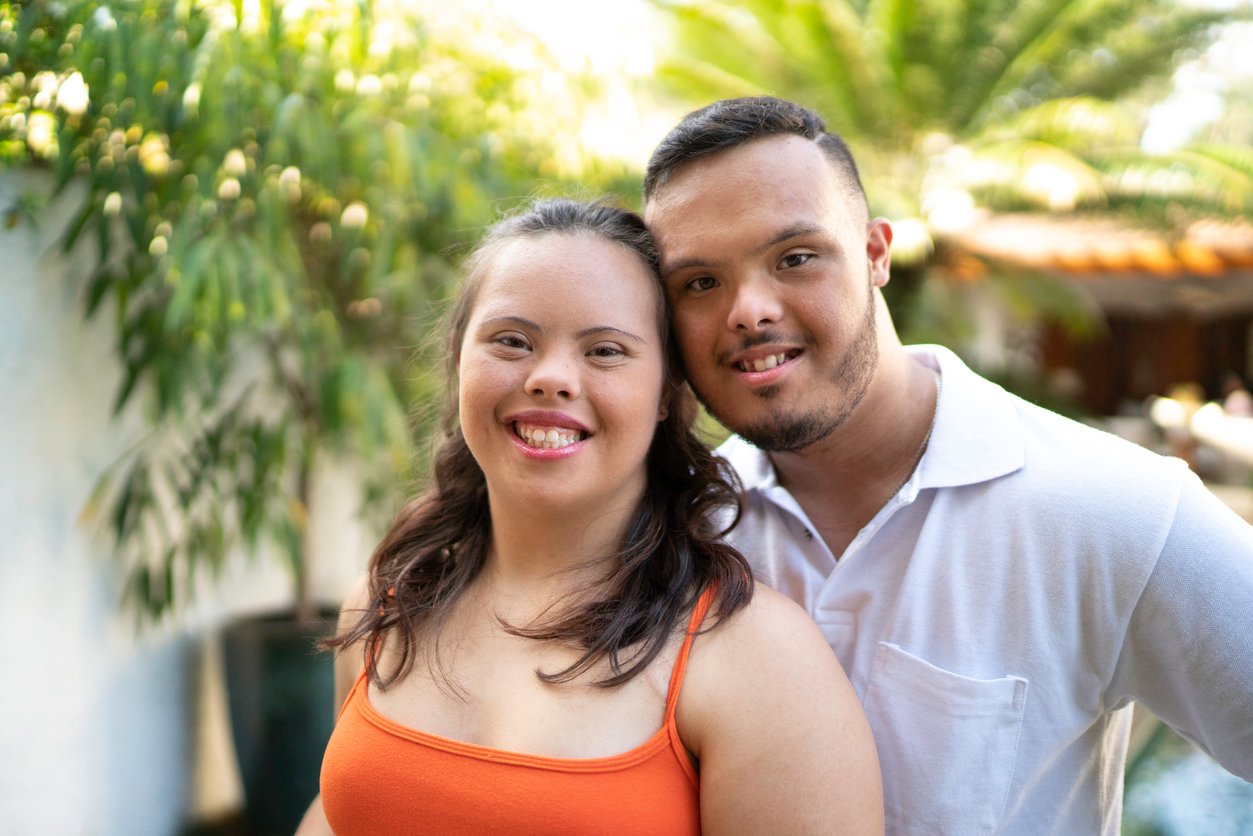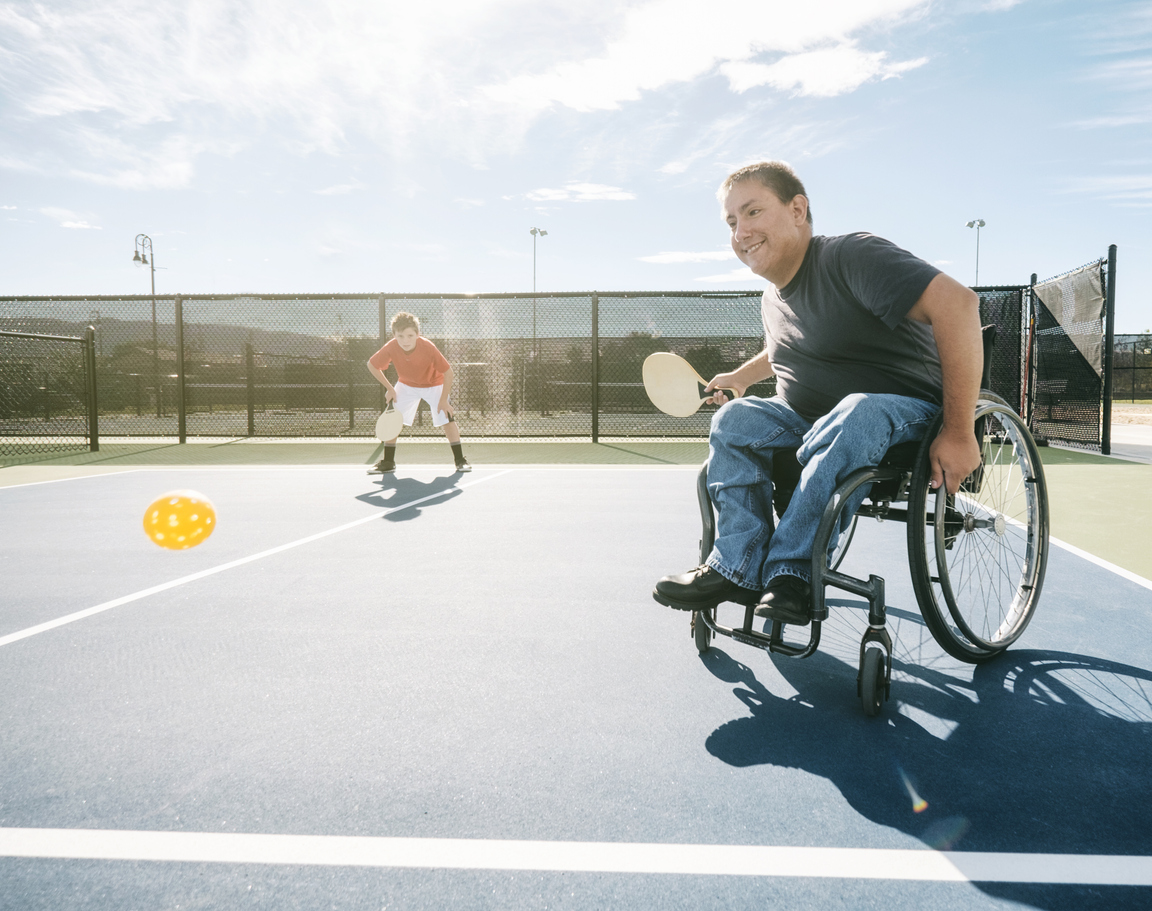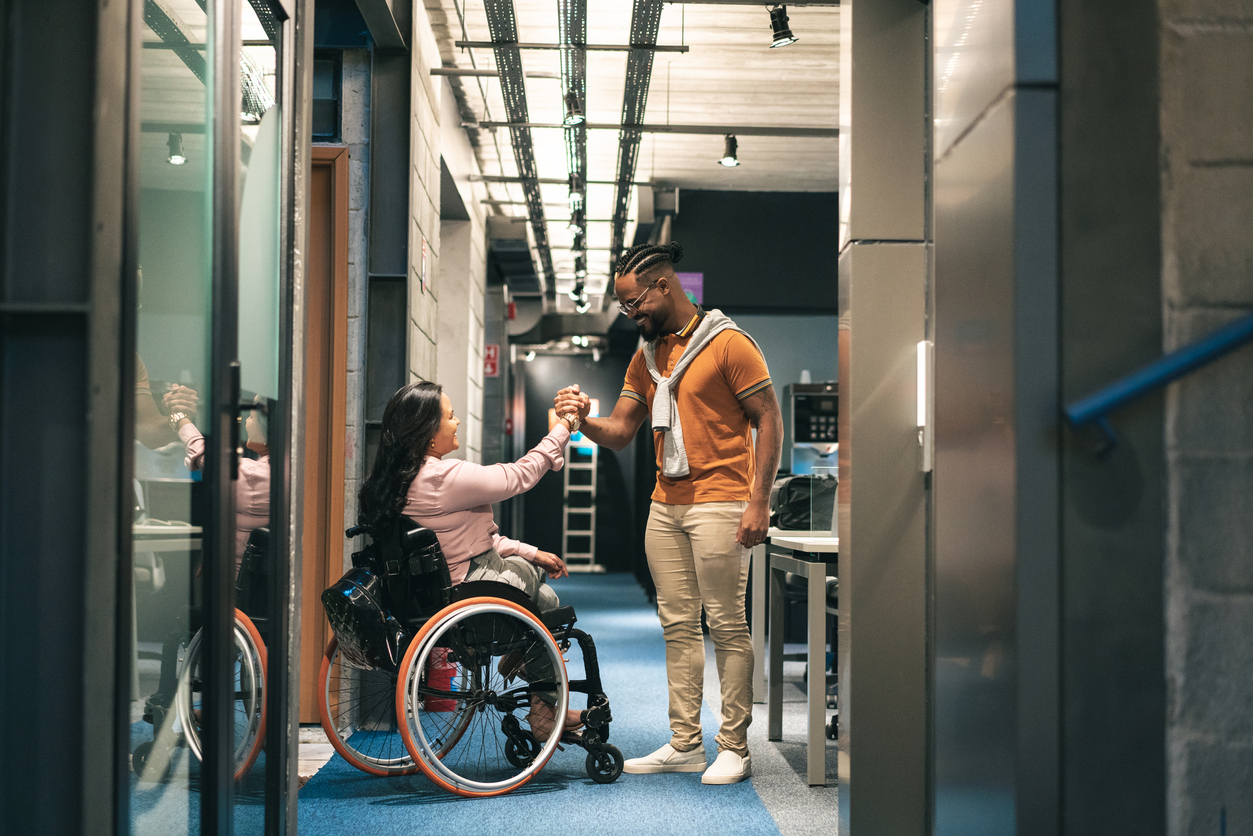2 min read
Identifying Stigmas Around Intimacy in the IDD Community
It is often assumed that if you have a disability or disorder, intimacy does not happen or that it is unwanted. However, this is typically not the...
2 min read
 Angela Lydon
:
Jan 17, 2024 1:30:06 PM
Angela Lydon
:
Jan 17, 2024 1:30:06 PM
It’s no secret that the IDD community faces stigmas and struggles that others may not. Disabilities come in many forms- physical, mental, intellectual, and more. Depending on an individual’s specific condition, it may impact their abilities and create obstacles others likely don’t experience. However, this does not mean they should disregard having intimate or romantic relationships. Everyone wants to feel wanted and loved by another person, and the IDD community should not be excluded.
Here are some of the most common assumptions and stigmas about intimacy and dating in the disabled community.
Because of the struggles people in the IDD community can have establishing and maintaining relationships, it is frequently assumed that they do not care about having a romantic or intimate relationship. This is untrue and quite the opposite. Studies and comments from research reports and employees working in the community so often express that their clients or disabled people want a relationship and that it is a high priority. Listening to their wants and needs is important in reducing the assumption of what they desire.
Like the stigma above, it is often thought that people in the disabled community don’t need a relationship. This is also false. Since many people, especially those with physical limitations, have caretakers, it is assumed that they still have someone they can talk to or connect with emotionally. However, it is essential to make the distinction between a caregiver and a boyfriend or girlfriend. Like anyone else, people with disabilities want and need someone to interact with on an emotional and romantic level.
Relationships are more than just physical intimacy and sparks. Connecting emotionally is essential as well. Despite the happiness relationships bring us, it takes commitment and work to maintain a healthy relationship. People outside of the IDD community often think that disabled people are incapable of comprehending what it takes to build and keep a relationship, or that they don’t have the intellectual capacity. However, many disabilities don’t hurt intelligence.
There are many physical disabilities a person can have, including but not limited to being in a wheelchair or blindness. While some disabilities can make physical intimacy more challenging, it does not mean they don’t want that sort of relationship or don’t deserve it. They may just need to have more medical advice or suggestions for their intimate life from medical professionals to ensure their safety.
Some intellectual or mental disabilities can affect a person’s ability to connect socially. This includes things such as being unable to effectively read social cues or not knowing when to say certain things in the right setting. It may be difficult to express emotions as well. Because of this, it is frequently assumed that the IDD community doesn’t have emotions, or they will be unable to control or express them. Like anyone else, if a disabled person is having trouble figuring out how they feel, they can discuss these concerns with a healthcare professional and work towards healthier methods of communication.
Society needs to try and work past these stigmas as it harms the IDD community in many cases. To do this, educating and learning more about their situation and conditions is essential.
For more details on the community and methods of creating relationships, visit https://hello-itsme.com/ today.
References
"Stigma, Acceptance and Belonging for People with IDD Across Cultures." PMC PubMed Central- National Library of Medicine-National Center for Biotechnology Information, 30 Jun. 2020, www.ncbi.nlm.nih.gov/pmc/articles/PMC7326393/. Accessed 8 Jan. 2024.
"Relationship Depth and Associative Stigma of Disability." Disability Studies Quarterly, 30 Jun. 2020, dsq-sds.org/index.php/dsq/article/view/5527/4706. Accessed 8 Jan. 2024.

2 min read
It is often assumed that if you have a disability or disorder, intimacy does not happen or that it is unwanted. However, this is typically not the...

4 min read
What are community activities?

2 min read
Getting to know someone can be intimidating, especially as an adult. Meeting someone and getting to know them can be challenging, especially if you...